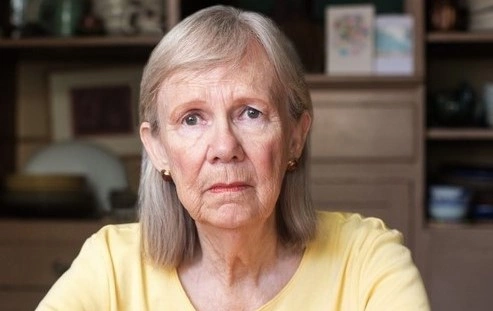Solving The Mystery of an Unsafe Hospital Discharge

Have you or someone you know been hospitalized and discharged with a poor understanding of the follow-up care plan? Have you ever left a hospital without a clear understanding of why specific procedures occurred in the first place? A recent client had this experience.
The Hospital Discharge Mystery
An elderly female client was recently discharged from the hospital with a feeding tube in her stomach but she didn't know why. I met with the client and her son for an initial session and they both attempted to describe her medical history, without much success. She said, «I had a stint place in my stomach.» Her son attempted to describe what happened, but I determined he was unsure and a little confused himself. He looked exasperated.
Hospital discharge is typically overwhelming for most people. There is much information discussed over a short amount of time.
The son shared a folder full of crumpled, disorganized papers. As I scanned the folder, I found a lot of unrelated documents along with an instruction sheet for feeding tube use.
I had plenty of questions and not many answers:
• What initially brought her to the hospital? What was her main complaint?
• Was she getting her nutrition through her feeding tube?
• Was she eating a regular diet?
• Did anyone educate them on how to use the feeding tube?
The son said, «I don't know, that's why I'm here!»
So, the alarms sounded in my head:
• Who discharged the patient?
• Who signed off on the discharge instructions?
• Was she safe eating a regular diet?
• Why doesn't anyone know the story?
I like to know the full story. It's my job to know the full story.
So, I requested the patient to sign a consent so I could retrieve her medical records. After reviewing her medical history and diagnosis, her story unfolded.
Mystery Solved
Here's what we leearned: The client went to the emergency room and was admitted to the hospital due to confusion and difficulty swallowing. Several diagnostic tests were completed, including an MRI, blood work, and urinalysis. Nothing significant showed in her lab reports, but the MRI showed some brain atrophy. No records of a swallowing evaluation were in her chart. However, she did consent to the feeding tube. She was discharged home with her son and tube feeding care instructions.
Based on my findings, I recommended the following:
1. Her son to become the client's power of attorney so he can act on her behalf if she is incapable.
2. The patient to contact her physician and request a swallowing exam to determine if a feeding tube is necessary. The patient reported she was currently eating at home and not using the feeding tube.
3. Patient to complete her advance directives, so her wishes for end-of-life care are known.
I also provided education about inpatient hospitalization and discharged safety so she or her son has a good understanding of her care plan. My background in voice and swallowing allowed me to educate the patient about swallowing difficulties and when she should seek the help of a speech pathologist. In addition, I advised her to obtain and consolidate her medical records and signed permission to share them with her physicians.
My background in voice and swallowing allowed me to educate the patient about swallowing difficulties and when she should seek the help of a speech pathologist.
Her story ended with her physician removing her feeding tube since she passed her swallowing evaluation and tolerated a regular diet. She completed her advance directives, and her son is her power of attorney. For future hospital admissions, she will have a trusted representative to help her make informed choices.
Lesson Learned: Don't Let This Happen To You
Hospital discharge is typically overwhelming for most people. There is much information discussed over a short amount of time. Medical hazards occur when discharge planning isn't practical and thorough. As a result, patients don't always remember or understand the discharge instructions before leaving the hospital. As a result, the paperwork is lost transitioning home from the hospital, or they don't know where to look to find the information.
So, how can you prepare for a safe hospital discharge and feel confident about the follow-up care?
If you want your discharge to run smoothly and the medical mumbo jumbo is confusing, it's time to reach out, so you understand and feel confident about your care.
A patient advocate can help you avoid this situation. So, If you want your discharge to run smoothly and the medical mumbo jumbo is confusing, it's time to reach out, so you understand and feel confident about your care. I will help you stay informed about your situation, questions to ask, and make sure you or your loved one gets the information needed so they don't end up back in the hospital due to misinformation.
Reach out to www.medicaladvocacyplus.com to learn how you can assure a safe hospital stay or discharge.
